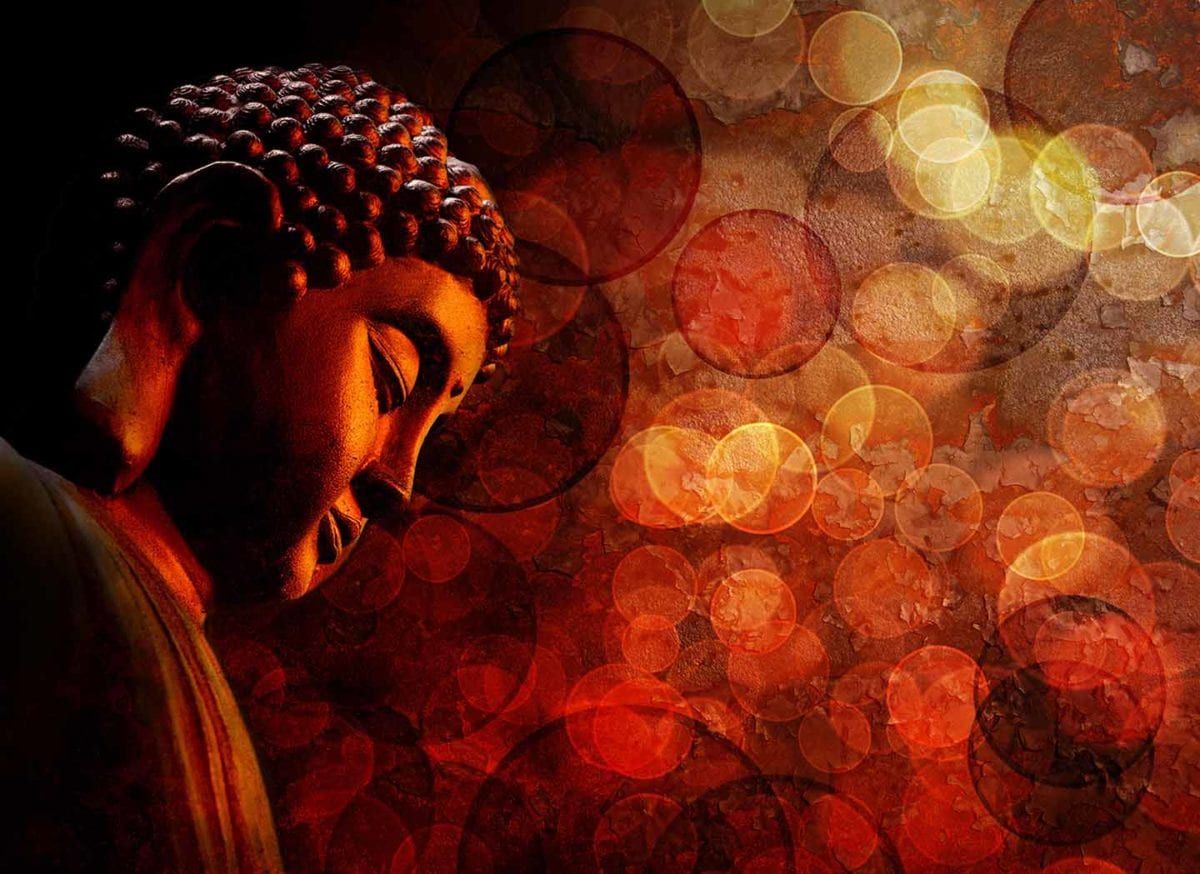The other day I read the story of Patacara in Anna Prajna Douglas’s words from The Hidden Lamp. As follows (partially paraphrased):
Some 2500 years ago, Patacara was born into a rich family in India but eventually ran off to marry a pageboy. Tragedy hit her life when Patacara was about to deliver her second child. She lost her entire family in one day. Legend has it that her husband was bitten by a poisonous snake on the same day as her newborn baby was carried off by a hawk. Within a span of minutes, her parents’ house collapsed killing her brother, mother and father while her older son drowned in a river.
Mad with grief, Patacara tore off her clothes and wandered around like a lunatic. Naked and unkempt, she roamed around aimlessly for a long time, until she meandered into Jetavana where Buddha was teaching. Looking at her despicable and indecorous state, some of the senior monks got up to drive her out of the sage’s sight. Buddha raised his hand to stop them.
Patacara fell at his feet. Her tears had long dried up. Her hair was knotted, her body stinking and soiled. Unaware of her appearance, she alternated between howling and sobbing.
“O noble lady,” Buddha spoke softly, “be mindful.”
At his compassionate words, Patacara experienced a sense of normalcy and instantly realized that she was stark naked. A man offered his cloak and she covered herself. She narrated all the tragedies and begged Buddha to help her.
“I can’t help you,” Buddha said. “No one can. For countless lives you have wept for loved ones. Your tears could fill the four oceans. But no one can be a secure hiding place from suffering. Knowing this, a wise person walks the path of awakening.”
Her whole being was overwhelmed with a deep sense of peace at Buddha’s words and in his presence. The sage then spoke the following verses from the Dhammapada (288-289):
“There are no sons to give shelter, no father, no family for one seized by Death, no shelter among kin. Conscious of this, the wise, restrained by virtue, should clear the path that goes to Nirvana.”
She was ordained in his sangha and Buddha instructed her to meditate on impermanence.
“Patacara,” he said, “everyone dies one day. All human beings must die. It is better to see the truth of impermanence even for just a moment than to live for a hundred years and not know it.”
Impermanence is the essence of existence. Our world, this universe is surviving and intact because it’s constantly changing. And at the root of our struggles is the quest for permanence, to somehow vainly ensure that any good in our lives must remain as is. Harmony and evolution, however, flourish on a different principle — the principle of freedom.
You kill whatever you cling to. For anything to survive, it must have a degree of freedom. Imagine if the sky held onto the clouds, never letting them go. There would be no rain, and eventually, the oceans would dry up too and the planet would cease to exist. Nature sustains itself on the principle of impermanence. Awakening is to be at ease with your ever-changing life. It may not be easy but it’s entirely doable.
If someone doesn’t want to be in your life, let that person go. There’s no wisdom in holding on to a partner, person, employer or a thing. Everything and everyone must perish ultimately. Separation from all that we love is not a question of ‘if’ but of ‘when’. It’s inevitable, only a matter of time. Our childhood, adolescence, youth, old age, all phases pass. Those who loved you deeply yesterday may loathe you tomorrow. The memories of the one who you loved deeply once may only give you grief now. This is samsara – cyclical and transient.
The moment it dawns on you that nothing lasts forever and you feel okay with it, enlightenment is imminent. It is always followed by a state of perfect tranquility and harmony
“Honey,” a woman sat at the breakfast table said to her husband, “last night, I dreamed that you gave me a necklace of diamonds. What do you think it means?”
Smiling, the man kissed his wife and whispered, “You’ll know tonight.”
Surely enough, that evening, he came home with a small package beautifully wrapped. With a playful grin, he gave her the package. His wife jumped for joy and settled on the couch to open her gift. She undid the tape and unwrapped the package.
It had a book titled, “The Meaning of Dreams.”
We dream of life giving us a necklace of diamonds when it’s actually planning to give us the meaning of our dream. This mismatch is the chief cause of why most people are forever riding an emotional roller-coaster. They want permanence, some kind of guarantee when there’s none. The truth is absolutely everything is transient, a passing phase.
samaya pāe phala hota hai samaya pāe jharī jāta, sadā rahe nahīṃ eka sī, kā rahīma pachtaat. When the time comes the trees are laden with fruits and then with time it sheds those leaves and fruits. What are you brooding over, says Rahim, when all times pass.
This is one of the most potent self-affirmations to imbibe the truth of impermanence in your heart. Whenever you are down or disturbed, whenever you feel lost or low, just touch your heart and tell yourself that this time will pass. That suffering too is a part of life. It’s one of the seasons. Knock on your heart with a gentle touch of your hand and say that this trying time won’t stay forever.
Whenever you are over the moon or think you have the best life, tap your heart again and remind yourself that this time won’t last either. This too is one of the fleeting seasons. It has a strange but positive effect on your peace of mind. You feel more centered and grounded.
In the fullness of time, the present moment must make way for the next present moment. The present must yield to the future. This ceaseless play of moments emerging and passing is what gives beauty to the unpredictability of our lives. It’s beyond comprehension or control. At best, you can live it, love it and rejoice in it. Gratefully. This is the path of peace. And peace, I may add, is the only real treasure. The rest are temporary acquisitions.
Peace.
Swami
A GOOD STORY
There were four members in a household. Everybody, Somebody, Anybody and Nobody. A bill was overdue. Everybody thought Somebody would do it. Anybody could have done it but Nobody did it.
Don't leave empty-handed, consider contributing.It's a good thing to do today.





Comments & Discussion
21 COMMENTS
Please login to read members' comments and participate in the discussion.